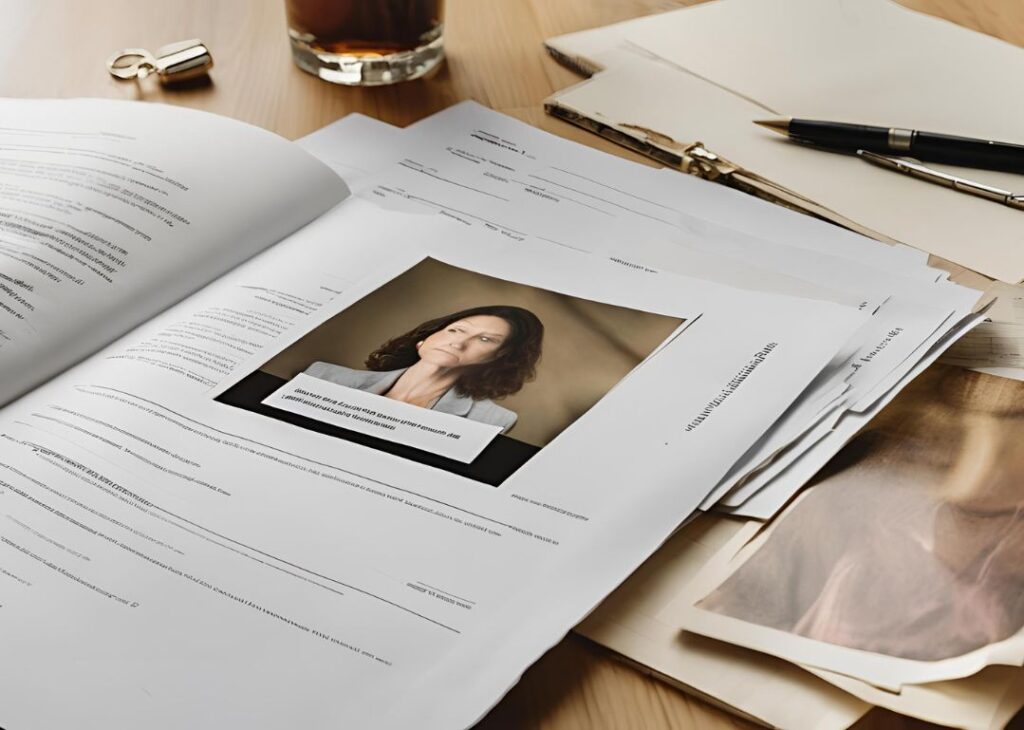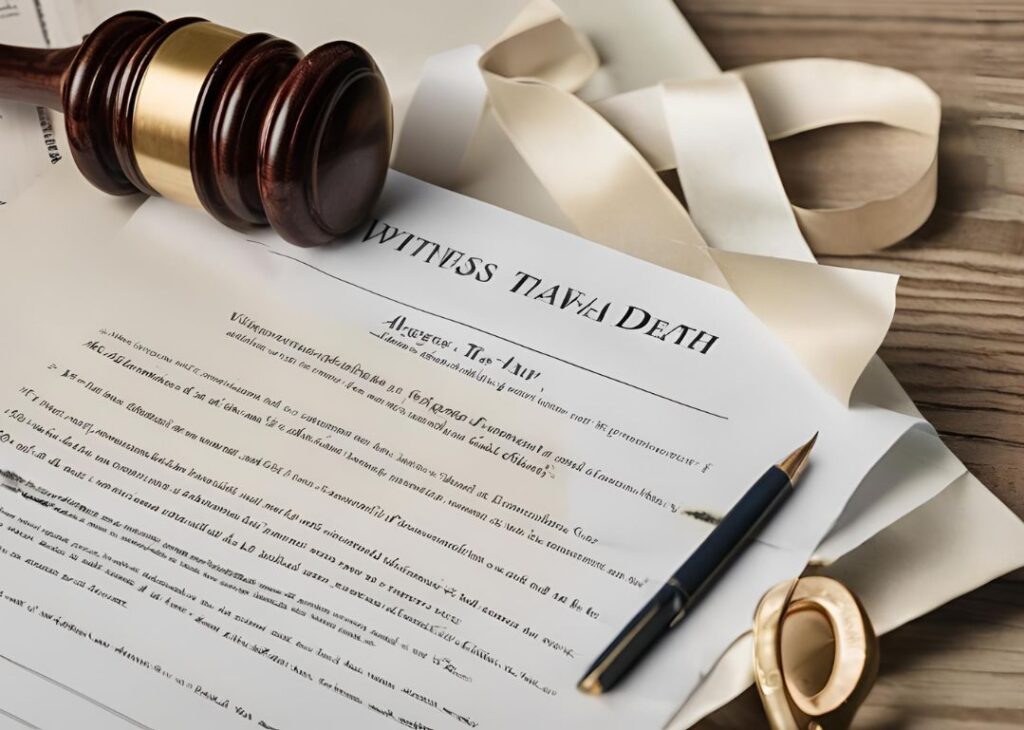TL;DR
Utilizing witness statements effectively can significantly bolster a wrongful death claim in Georgia. Collect detailed accounts from individuals who observed the incident, ensure their testimonies are consistent and credible, and work closely with legal professionals to integrate these statements into your case. Properly documented witness statements can provide essential evidence, clarify the circumstances of the death, and support the validity of your claim.
Key Highlights
- Gather Diverse Witness Statements: Collect testimonies from all relevant parties who saw or heard the incident.
- Ensure Credibility and Consistency: Verify the reliability of witnesses and confirm that their statements do not contradict each other.
- Detail Specific Observations: Encourage witnesses to provide comprehensive descriptions of what they observed, including time, location, and actions.
- Document Statements Thoroughly: Record and preserve all witness statements accurately for legal use.
- Integrate Statements into Legal Strategy: Collaborate with your attorney to present witness testimonies effectively in your claim.
- Address Potential Challenges: Anticipate and prepare for any disputes or discrepancies in witness statements during the legal process.

Witness statements often play a critical role in strengthening wrongful death claims in Georgia by providing firsthand accounts of the events leading up to a fatal incident. According to data from the Georgia Bureau of Investigation, eyewitness testimony is frequently essential in reconstructing accidents and establishing fault. Under Georgia law (O.C.G.A. § 24-6-612), these statements can corroborate physical evidence, clarify disputed facts, and lend credibility to your case when presented effectively in court.
However, gathering and using witness statements properly requires more than just collecting names and contact information. It involves careful interviewing, preserving the integrity of the testimony, and understanding how to present these accounts to support your claim strategically. This article breaks down the step-by-step process to identify, obtain, and utilize witness statements to build a stronger wrongful death lawsuit under Georgia law.
Step 1: Identify Potential Witnesses Early
Witness statements carry significant weight in wrongful death claims because they provide firsthand accounts of the incident or related circumstances. The first step is to identify anyone who might have witnessed the event leading to the wrongful death or its aftermath. These witnesses could include bystanders, family members, emergency responders, coworkers, or anyone with relevant information.
- Start by listing all possible witnesses present at or near the scene.
- Include people who can testify about the decedent’s condition before and after the incident.
- Don’t overlook experts or professionals who evaluated the situation, such as medical personnel or accident reconstructionists.
Identifying witnesses promptly ensures their memories are fresh and that you can preserve their statements before details fade or circumstances change.
Step 2: Collect Detailed and Accurate Statements
Once witnesses are identified, the next step is to gather comprehensive statements. These should be detailed, factual, and free of speculation. A well-prepared witness statement includes the witness’s account of what they saw, heard, or experienced related to the wrongful death.
- Use open-ended questions to encourage thorough responses.
- Record statements in writing or by audio/video, with the witness’s consent.
- Ask witnesses to describe the time, location, conditions, and any actions or behaviors they observed.
Detailed statements help establish a clear timeline, clarify fault or negligence, and support other evidence presented in the claim.
Step 3: Verify the Credibility and Consistency of Witnesses
Not all witness statements carry equal weight. It’s crucial to assess each witness’s credibility and ensure their accounts are consistent with physical evidence and other testimonies. Discrepancies or biases can undermine your claim.
- Cross-check witness statements against police reports, surveillance footage, and medical records.
- Evaluate the witness’s relationship to the parties involved to identify potential bias.
- Consider the witness’s ability to perceive and recall events accurately.
Credible, consistent witness testimony strengthens your case by corroborating key facts and reinforcing your narrative of negligence or liability.
Step 4: Use Witness Statements to Corroborate Expert Testimony and Evidence
Witness statements do not stand alone; they should complement other evidence such as expert analyses, medical records, or accident reconstructions. Together, these elements build a compelling, fact-based claim.
- Align witness accounts with medical expert opinions about cause of death or injury severity.
- Use statements to confirm details established by accident reconstruction reports or physical evidence.
- Highlight how witnesses observed the impact of negligence or unsafe conditions.
This combined approach makes your wrongful death claim more persuasive and legally robust.
Step 5: Present Witness Statements Effectively in Settlement Negotiations or Trial
Finally, witness statements should be strategically used during settlement talks or court proceedings. Proper presentation can influence insurance adjusters or juries by providing relatable, human perspectives on the incident.
- Summarize key witness testimony clearly in demand letters or settlement packages.
- Prepare witnesses for depositions or trial testimony, ensuring they understand the process.
- Use direct quotes or video testimony to highlight critical facts in court.
Effectively leveraging witness statements increases your chances of obtaining fair compensation and justice for your loved one.
The Importance of Witness Statements in Wrongful Death Claims
Witness statements serve as crucial pieces of evidence in wrongful death lawsuits. They offer independent verification of the events and conditions surrounding the death, helping to establish liability and support the claimant’s version of events.
Corroborating Evidence
When multiple witnesses provide consistent accounts, they strengthen the overall case by confirming key details. This consistency can validate other forms of evidence, such as photographs, medical records, and expert testimonies, creating a more cohesive narrative.
Providing Detailed Accounts
Witnesses can offer specific information that may not be apparent through other evidence sources. Their observations can shed light on the behavior of the parties involved, environmental conditions, and actions taken immediately before and after the incident.
Establishing Credibility
Credible witnesses enhance the trustworthiness of the claim. Witnesses who are unbiased and have no stake in the outcome of the case are particularly valuable, as their statements are viewed as more objective and reliable.
Identifying and Selecting the Right Witnesses
Choosing the appropriate witnesses is a strategic process that can significantly impact the strength of your wrongful death claim. Identifying individuals who have direct or indirect knowledge of the incident and the circumstances leading to it is essential.
Direct Witnesses
These are individuals who were present at the time of the incident and can provide firsthand accounts of what transpired. They can include bystanders, first responders, or anyone who observed the event directly.
Indirect Witnesses
Sometimes, individuals who were not present during the incident but have relevant information can offer valuable insights. This might include people who heard sounds, saw related activities leading up to the event, or have expertise relevant to the case.
Expert Witnesses
In certain cases, expert witnesses such as accident reconstruction specialists, medical professionals, or industry experts can provide specialized knowledge that supports the technical aspects of the claim.
Collecting and Documenting Witness Statements
Properly collecting and documenting witness statements is critical to ensuring their effectiveness in your claim. This process involves several steps to guarantee that the information is accurate, comprehensive, and admissible in court.
Initial Contact and Interviews
Reach out to potential witnesses as soon as possible after the incident. Conduct interviews in a structured manner, asking open-ended questions to allow witnesses to provide detailed narratives without leading them.
Written Statements and Affidavits
Have witnesses provide written statements or affidavits that outline their observations and experiences. Ensure these documents are signed and notarized to enhance their legal validity.
Recording Statements
With permission, consider recording interviews to capture the exact words and emotions of the witnesses. Audio or video recordings can serve as supplementary evidence, providing a clear and unaltered account of their testimonies.
Preserving Original Statements
Keep the original statements in a secure and organized manner to prevent tampering or loss. Digital copies should be backed up, and physical documents stored in a safe location.
Analyzing and Using Witness Statements in Your Case
Once witness statements are collected, analyzing and integrating them into your legal strategy is paramount. This involves evaluating the content, identifying key points, and determining how they support your claim.
Identifying Key Information
Review each statement to extract relevant details that align with your case’s objectives. Highlight information that directly relates to negligence, causation, and the specific circumstances of the death.
Cross-Referencing Statements
Compare witness statements for consistency and coherence. Identify any commonalities or discrepancies that could either strengthen or challenge your case.
Presenting Evidence
Work with your georgia wrongful death lawyer to incorporate witness statements into legal filings, depositions, and court presentations. Ensure that each statement is introduced in a manner that maximizes its impact and relevance.
Supporting Legal Arguments
Use witness testimonies to back up your legal arguments, such as establishing the defendant’s duty of care, the breach of that duty, and the direct link to the wrongful death.
Addressing Challenges with Witness Statements
Even with well-prepared witness statements, challenges may arise during the legal process. Being prepared to address these issues is crucial for maintaining the integrity of your claim.
Inconsistent Statements
Discrepancies between witness accounts can undermine the credibility of the testimonies. Address inconsistencies by clarifying details with witnesses and providing context that explains any differences.
Unavailable Witnesses
Sometimes, key witnesses may become unavailable due to relocation, illness, or other reasons. Plan for contingencies by identifying alternative witnesses who can provide similar information.
Impaired Memory
Witnesses might have difficulty recalling specific details, especially if significant time has passed since the incident. Use clear and precise questioning techniques to help them remember pertinent information.
Hostile or Biased Witnesses
In cases where witnesses may have a vested interest or exhibit bias, work on establishing their credibility by highlighting their reliability and the consistency of their statements.
Maximizing the Impact of Witness Statements
To ensure that witness statements have the desired effect on your wrongful death claim, consider the following strategies for maximizing their impact.
Coordination with Legal Counsel
Collaborate closely with your attorney to align witness statements with your overall legal strategy. Ensure that all statements support the key elements of your claim and are presented effectively.
Strategic Presentation in Court
Present witness testimonies in a clear and organized manner during legal proceedings. Use visual aids or timelines to help the court understand the sequence of events and the significance of each statement.
Reinforcing with Additional Evidence
Combine witness statements with other forms of evidence, such as photographs, medical records, and expert opinions. A multifaceted approach strengthens your case by providing comprehensive support.
Regular Review and Updates
Continuously review witness statements and update them as necessary throughout the legal process. This ensures that all information remains accurate and relevant as the case progresses.
Conclusion
Effectively using witness statements can significantly strengthen a wrongful death claim in Georgia by providing firsthand accounts that clarify the circumstances of the incident and support your legal arguments. These statements help establish liability, reinforce other evidence, and lend credibility to your case in negotiations or at trial. However, to maximize their impact, it is crucial to gather, preserve, and present witness testimony carefully and in accordance with Georgia’s legal standards.
If you or a loved one is pursuing a wrongful death claim, consulting with an experienced Georgia wrongful death attorney can ensure that witness statements and other evidence are handled properly to build the strongest case possible. Early action is vital to locating witnesses and securing their accounts before memories fade or evidence is lost. Contact us today for a free case evaluation to discuss how witness testimony can play a key role in obtaining the compensation and justice your family deserves.
